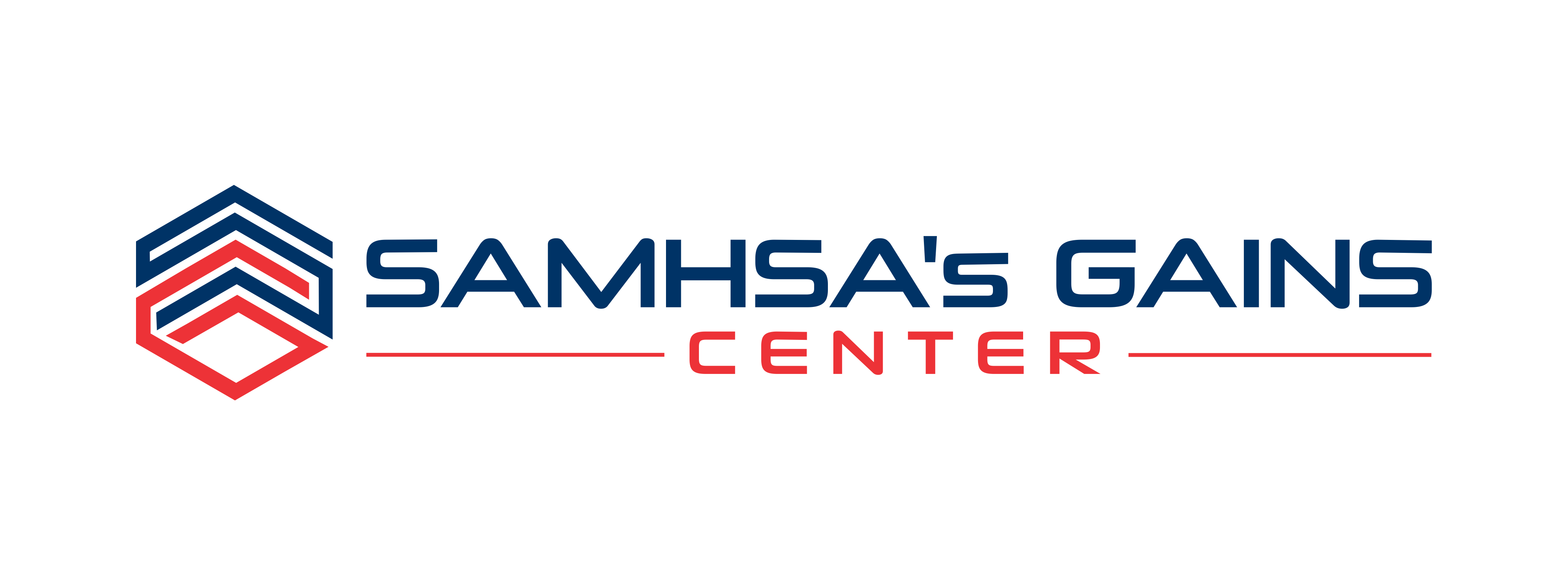The National Association of Drug Court Professionals’ (NADCP) RISE19 Conference will be held in National Harbor, Maryland, July 14 to 17, 2019. SAMHSA’s GAINS Center is organizing 5 panels and a 3-hour pre-conference workshop session for RISE19. The pre-conference workshop will explore trauma-informed responses among judges and other court professionals. The panel sessions will explore vicarious trauma in treatment courts, including people with co-occurring disorders in treatment courts, collaboration between treatment courts and mental health courts, suicide prevention in Veterans treatment courts, and integrating peer support in treatment courts with participants who have CODs. Details for the panels and pre-conference workshop are below; SAMHSA’s GAINS Center hopes you are in attendance!
Pre-conference Workshop
How Being Trauma-Informed Improves Judicial Decision-Making
Sunday, July 14, 2019, 9:15 a.m. – 12:15 p.m. | Maryland D
Presenters: Chanson Noether and Lisa Callahan, SAMHSA’s GAINS Center
This 3-hour workshop is designed specifically for judges and other court professionals. The goals are to increase understanding of trauma, create an awareness of the impact of trauma on behavior, understand vicarious trauma and the impact on court professionals, and develop trauma-informed responses that avoid re-traumatization, increase safety, reduce recidivism, and promote recovery.
Panel Sessions
When Your Treatment Court Is the Only “Game” in Town: How to Effectively Include Persons with COD in Your Court
Monday, July 15, 2019, 8:00-9:15 a.m. | Maryland 1-3
Presenters: Brian Case, SAMHSA’s GAINS Center (Moderator); Debra Pinals; Stephen Goss; Susan Sturges
This panel addresses key issues for adult drug treatment courts (ADTC) that do not have a partner mental health court. Topics that will be explored in this panel include whether or not to create a track for COD; which behavioral health partners should be identified; best practices for effectively treating persons with COD; determining the need for developing separate policies for people with COD; and other key concerns for courts that have participants with COD among their ADTC participants.
How to Best Utilize Peer Recovery Coaches and Peer Support Specialists in Your Treatment Court When Working with Persons with CODs
Monday, July 15, 2019, 9:30-10:45 a.m. | Maryland 1-3
Presenters: Jon Berg, SAMHSA (Moderator); Chanson Noether, SAMHSA’s GAINS Center; Erik Deiters; Nisha Wilson
This panel will explore the array of roles that peers can play as part of a treatment court team. The discussion will cover how peers are utilized across different types of treatment courts, with a special focus on discussing and challenging preconceptions about the requirements for peer specialists in a treatment court setting.
Veterans Treatment Courts and Suicide Prevention
Offered at two times! July 15, 2019, 9:30-10:45 a.m. | Woodrow Wilson Ballroom D AND Tuesday, July 16, 2019, 8:00-9:15 a.m. | National Harbor 12-13
Presenters: Brian Case, SAMHSA’s GAINS Center (Moderator); Donald Harris, SAMHSA’s Service Members, and their Families Technical Assistance Center; Dr. Patrick Welch; Trooper Seth Gahr
This panel will present strategies for incorporating evidence-based suicide prevention screening, assessment, and treatment into Veterans treatment court programs. Examples of how Veterans treatment courts can coordinate suicide prevention efforts will be provided. The panel will also discuss collaboration with other community stakeholders who provide services and supports for Veterans, such as the U.S. Department of Veterans Affairs, community-based outpatient clinics, and other Veteran peer-led organizations.
How Your Treatment Court Can Effectively Cooperate and Co-exist with the Mental Health Court in Your Jurisdiction
Monday, July 15, 2019, 4:00-5:15 p.m. | Maryland 1-3
Presenters: Lisa Callahan, SAMHSA’s GAINS Center (Moderator); Chris Stride; Amelia Cramer; Jennifer Johnson
During this session, panelists will provide an overview of how their jurisdiction developed and implemented best practices for the courts’ respective target population and programs. This discussion will include examples of screening and assessment to triage potential participants, distinctions in program policies and procedures (e.g., sanctions, rewards, and phases), and how to effectively communicate among courts.
Vicarious Trauma in Treatment Courts: The Increased Challenge of the Rise in Opioid Addiction and Overdose
Wednesday, July 17, 2019, 7:30-8:45 a.m. | Woodrow Wilson Ballroom BCD
Presenters: Chanson Noether, SAMHSA’s GAINS Center (Moderator); Lisa Callahan, SAMHSA’s GAINS Center; Jennifer Johnson; Wendy Morton
This panel will focus on vicarious trauma—the lingering effects of working with victims of abuse, neglect, and violence—that affects many professionals who work with treatment court participants. The impact of justice-involved individuals’ trauma has the potential to become vicarious trauma among treatment court professionals whose work is to understand their participants’ lives and contributing factors for their recovery. The rise of opioid addiction and the increased inclusion of persons with opioid addiction in treatment courts adds another layer of potential trauma and loss through the risk of overdose of their program participants.
Interested in joining us at RISE19? Register for the conference today!


